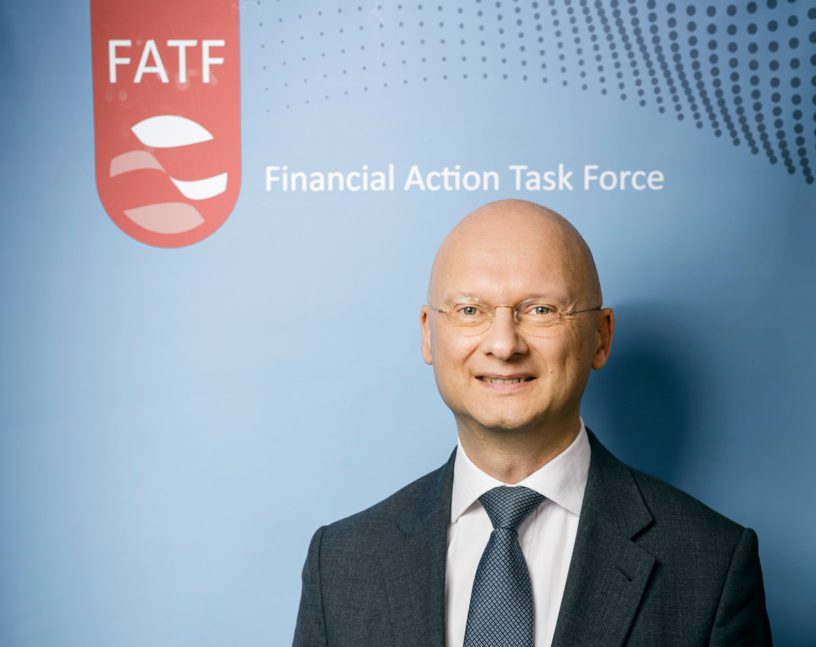PLUS: Counterfeit medical goods, cyberscan fraud force update of the agency’s global risk standards on financial crimes
By Vish Gain for AMLi
MORE than half of the world’s governments’ efforts to detect and prevent money laundering have been affected by the Covid-19 pandemic, FATF President Marcus Pleyer revealed today.
“Counterfeit medical goods, cyberscan fraud, and other consequences of the pandemic have made us update our global risk-based standards on fighting financial crimes,” he announced following a three-day virtual conference.
The intergovernmental organisation set up by the G7 to combat money laundering and terrorist financing had an agenda that included the impact of the pandemic on AML, amendments to their global standards, and decisions on the risk-category of countries of interest.
“Governments need to protect their citizens and economies by ensuring that financial support goes where it needs and does not fall in the hands of criminals,” said Pleyer.
“To do this effectively, governments must work in close partnership with the private sector.”
Through the new amendments, countries and financial institutions are now required to identify, assess, and mitigate the risk of proliferation financing — strengthening measures against the funding of weapons of mass destruction.
Saying that North Korea and Iran remain in the ‘high-risk’ list, Pleyer called on other governments to “apply effective counter-measures against them”.
The much-speculated position of Pakistan in the FATF listing was cleared when Pleyer announced that the country is to remain in the ‘grey list’.
“We recognise the progress Pakistan has made, completing 21 out of 27 items in its action plan. However, there is much more work to be done,” Pleyer said.
“The government has committed to meeting its remaining items, including targeted financial sanctions.”
Despite calls for an on-site visit to take place now, the FATF insisted that such an on-site visit can only take place when Pakistan meets all its commitments in the action plan.
Meanwhile, Iceland and Mongolia have been removed from the ‘grey list’ after completing their action plans.
When asked about the plenary’s implications for virtual assets, Player said that the issue has been prioritised by the body and several amendments have been made to their standards to respond to financial cybercrimes. A consultation between the FATF and the private sector is scheduled to be held at the end of October to discuss issues in virtual assets.
When asked about proliferation financing, Plenary said, “Countries like North Korea have become smarter at avoiding financial sanctions. Our objectives at this session included the need to stop funding for nuclear, bio, and chemical weapon material.”
“Our amendments stress that governments and banks must do more than take a ‘checklist approach’. They need to look closer at the government and business list of people avoiding sanctions.”
The next FATF plenary session is scheduled for February 2021.
Share this on:
Follow us on:











